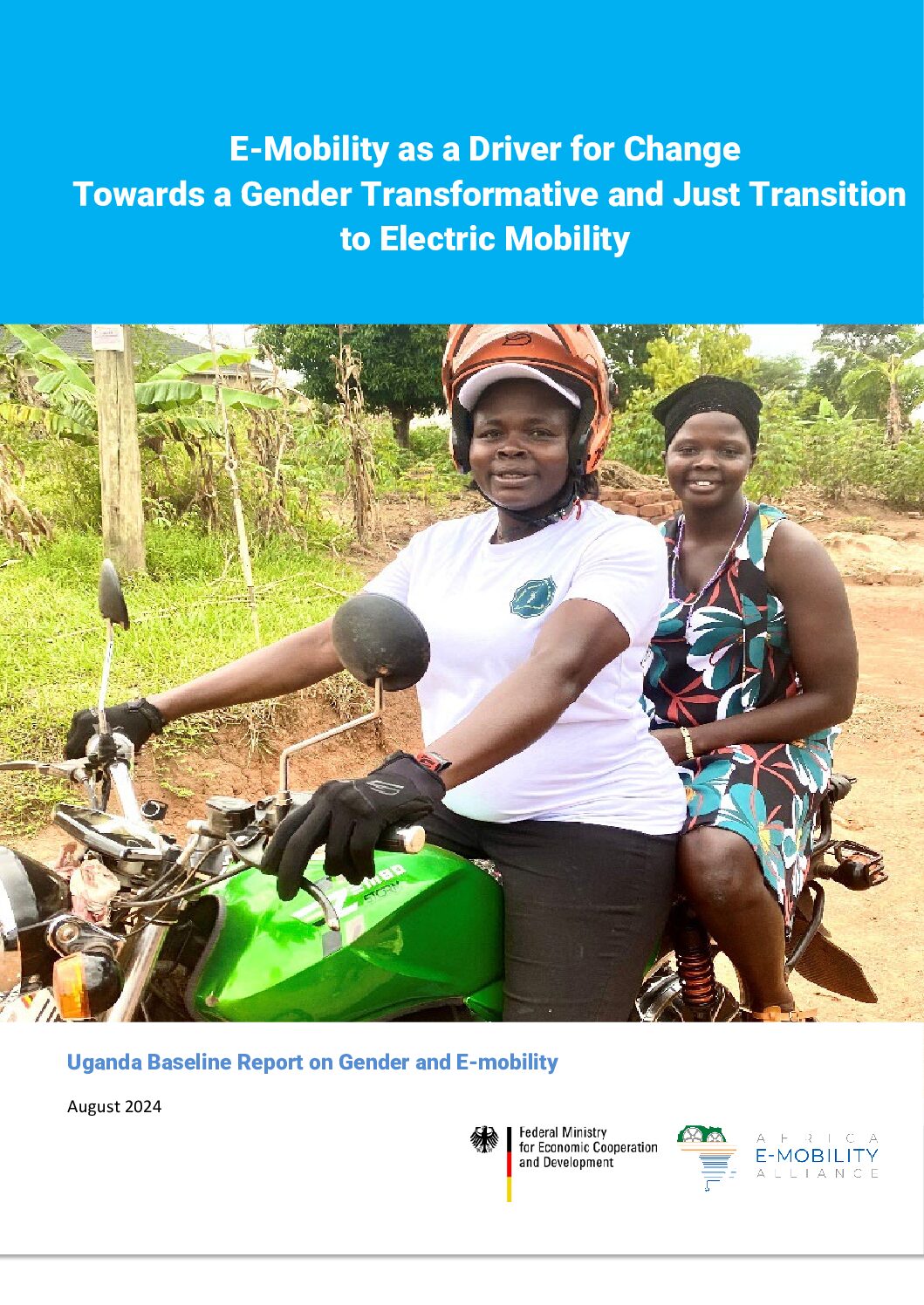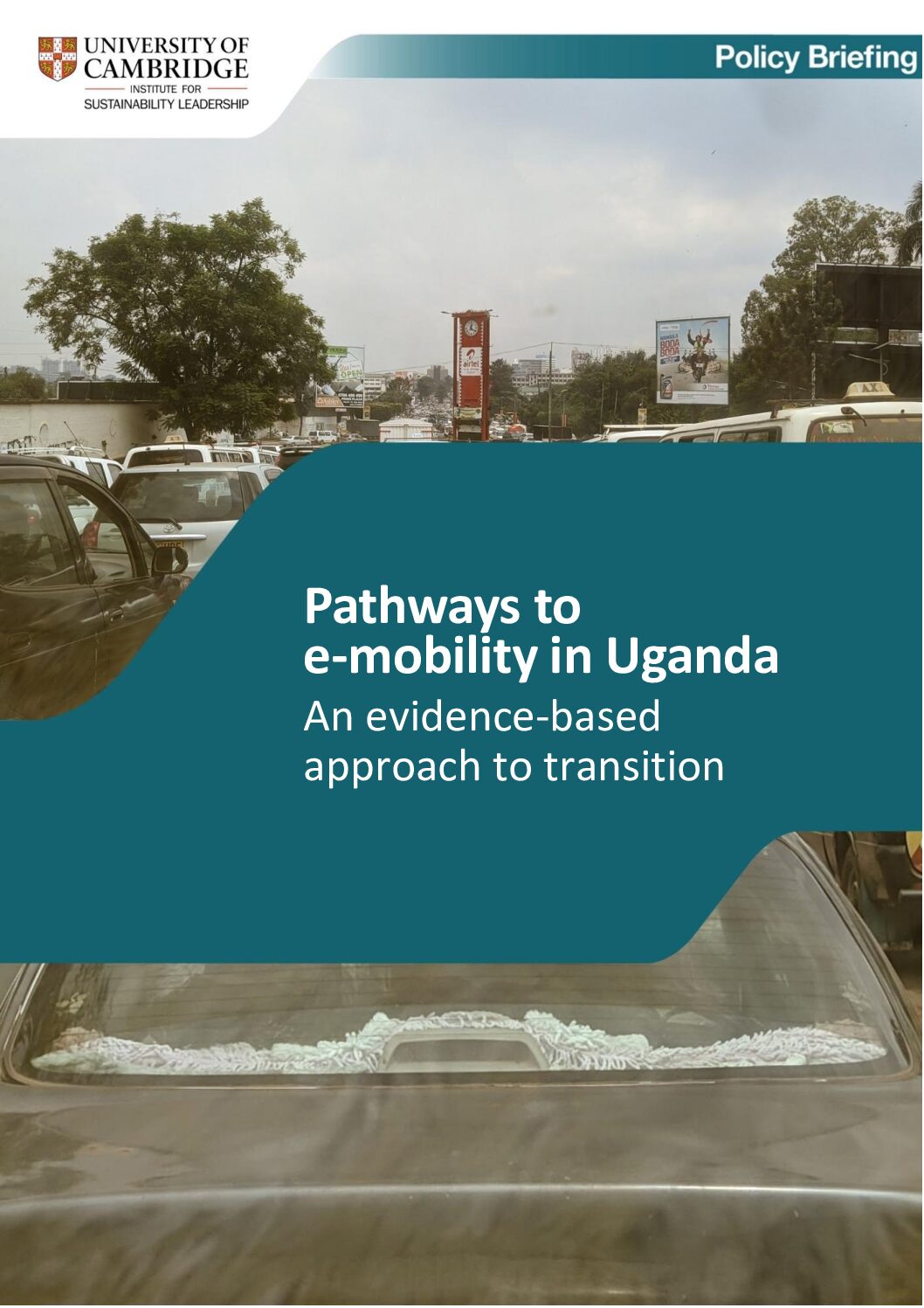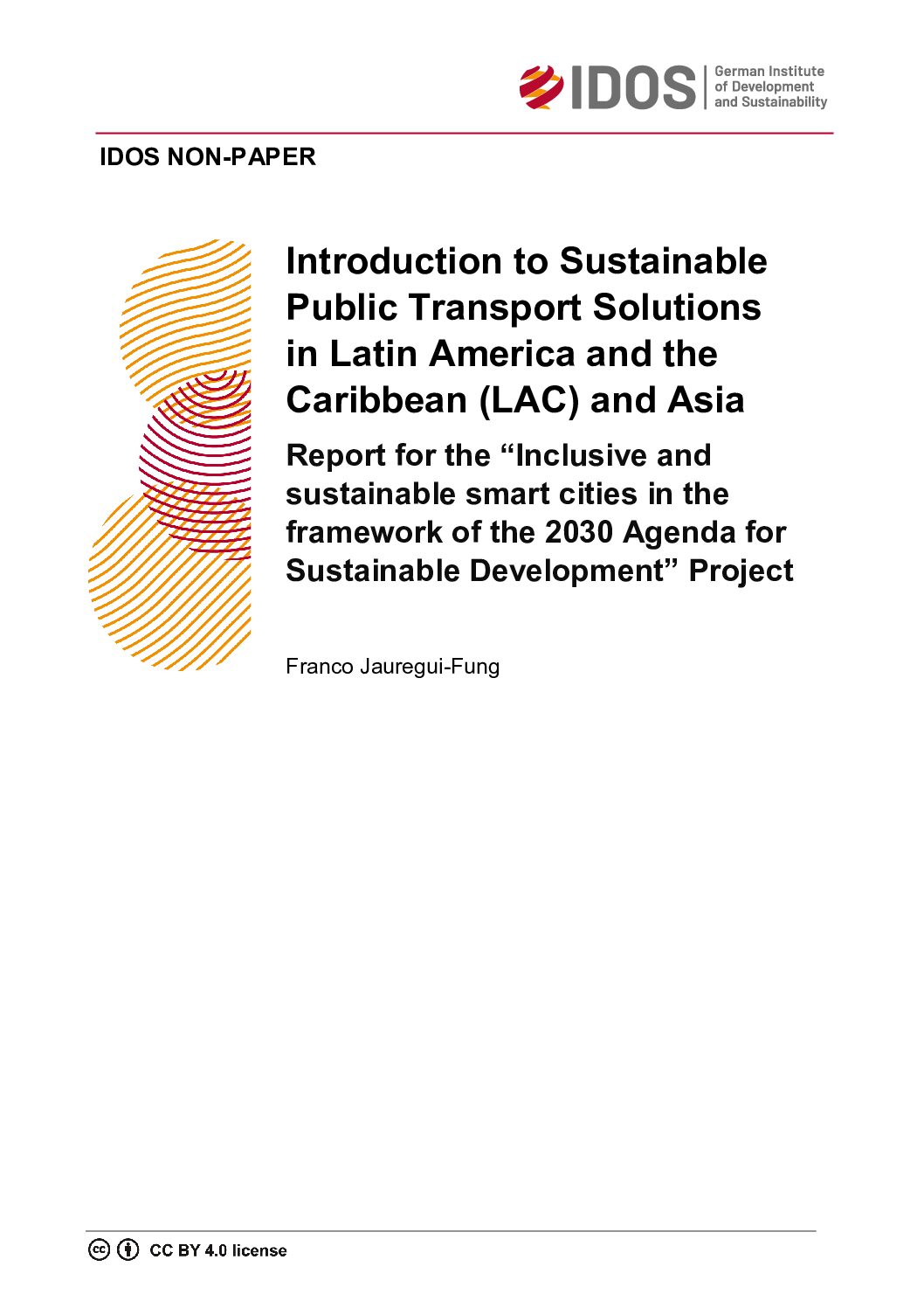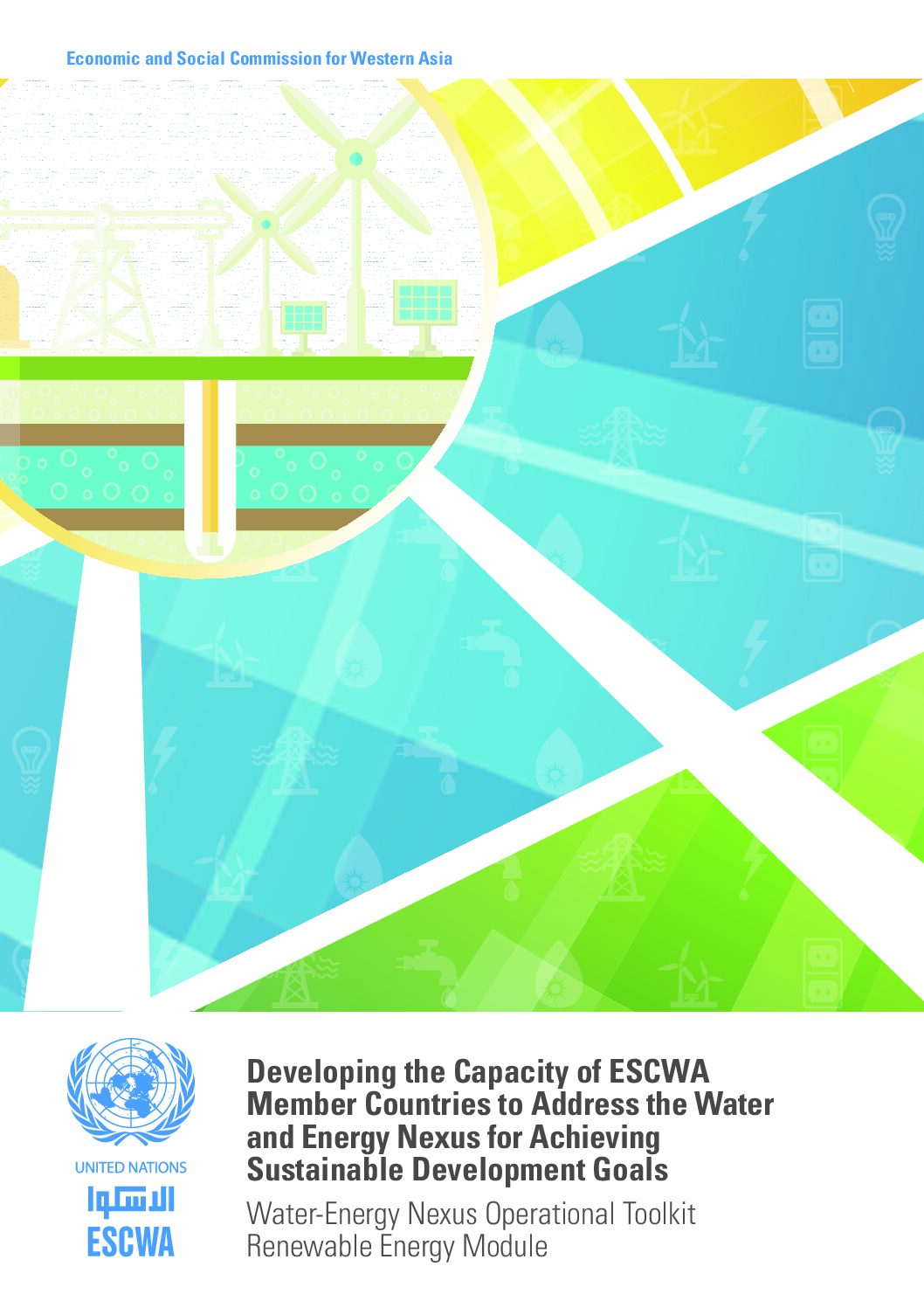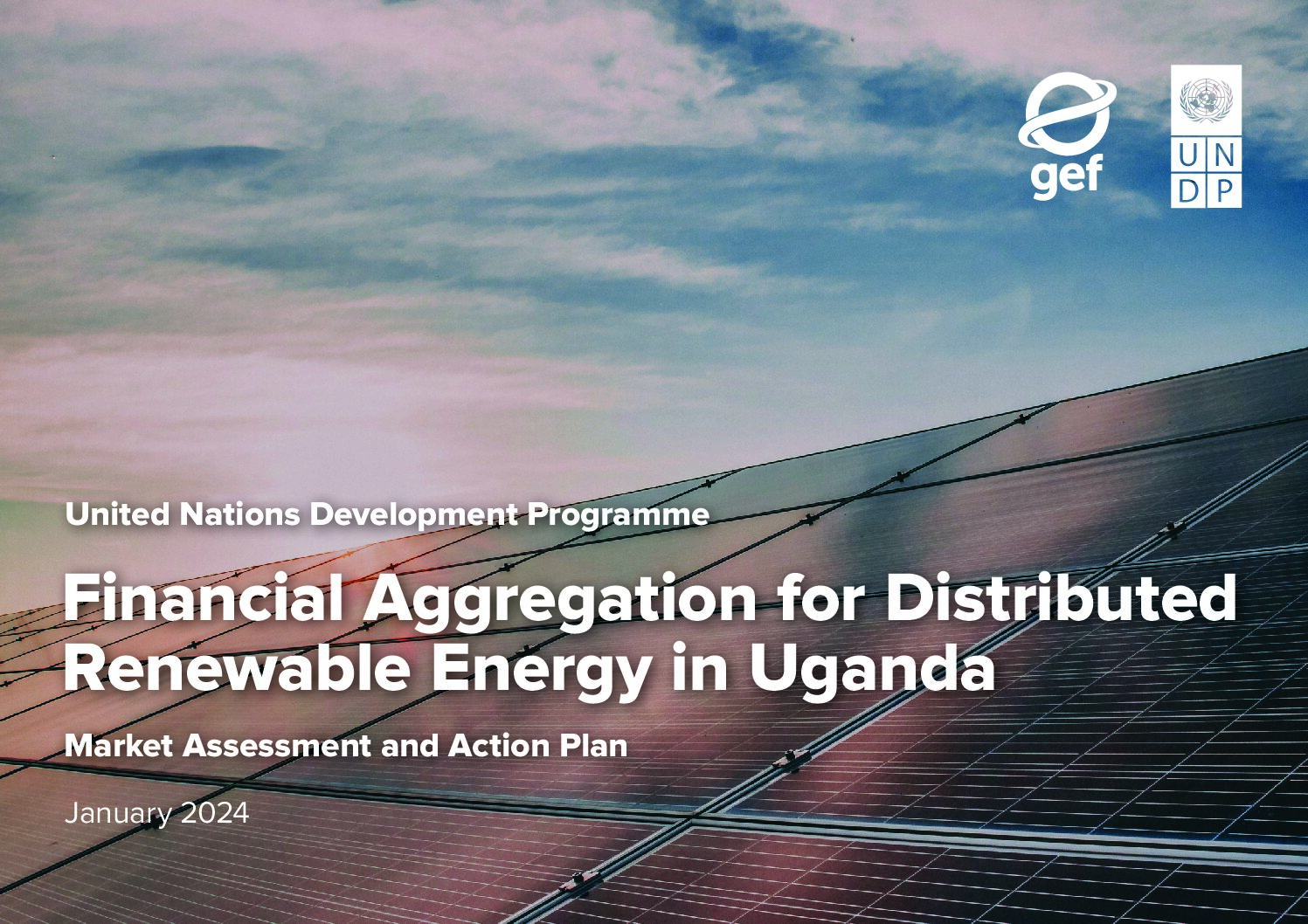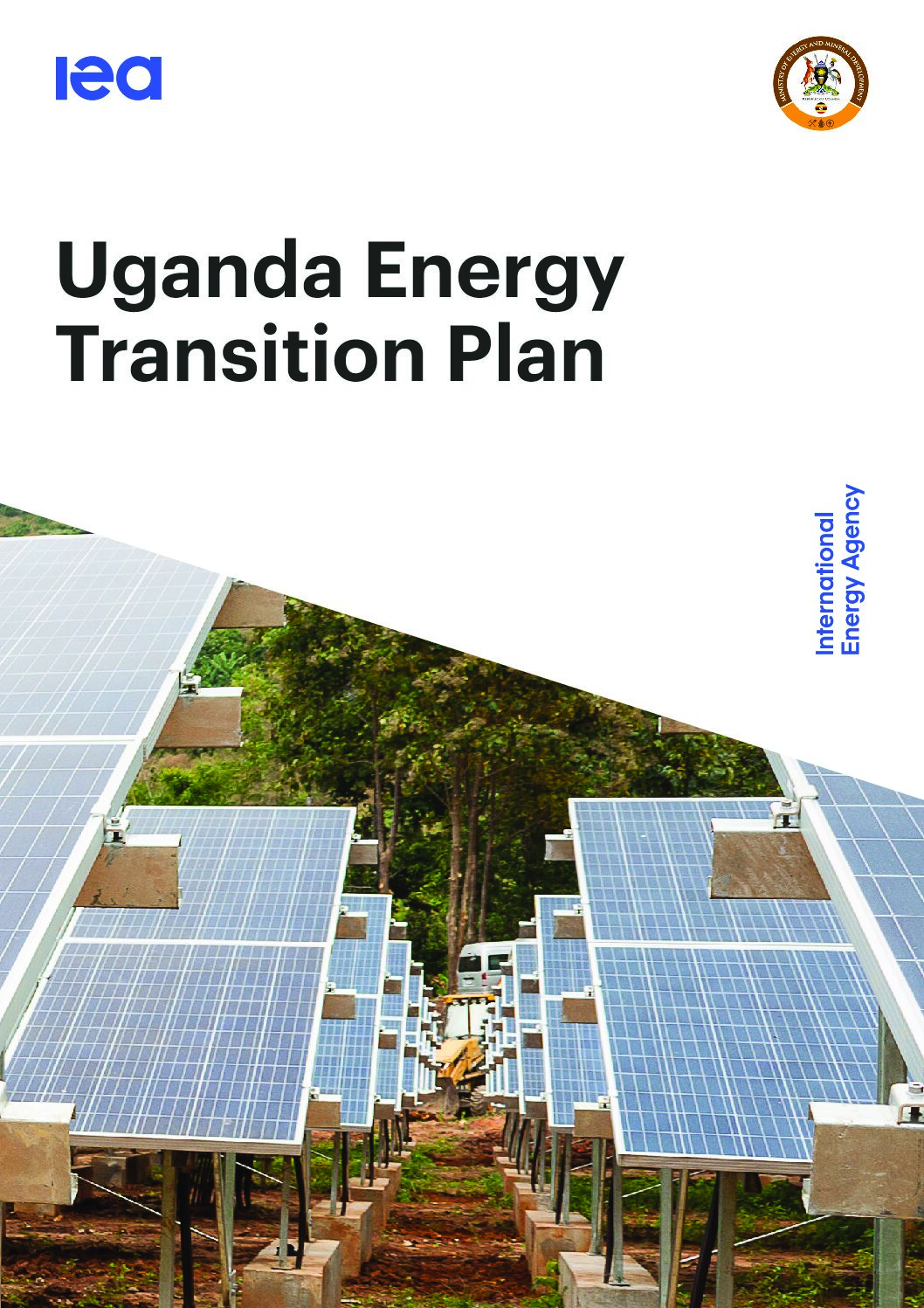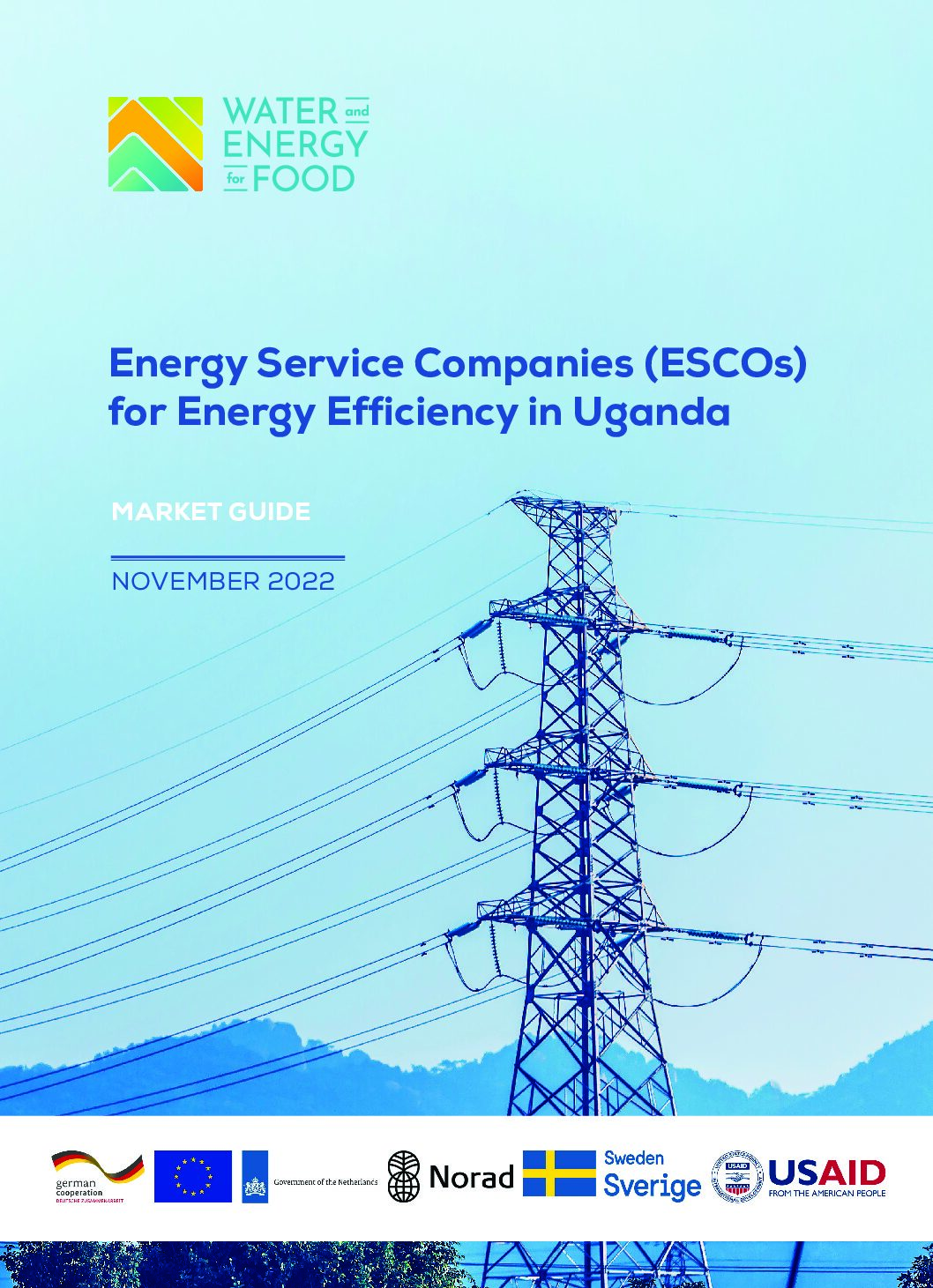This baseline study outlines the current status of gender equality in the transport sector in Uganda, and identifies potential for the advancement of gender equality in transport while also advancing the e-mobility transition.
This policy briefing aimsto improve understanding of the state of e-mobility in Uganda and how best to achieve the transition to low-pollution, low carbon and jobs-rich transportation.
This report first offers an overview of urban mobility challenges in LAC and Asia, then presents the Big Push for Sustainability Framework directed towards achieving sustainable urban mobility and its economic, social and environmental benefits. The third section identifies important concepts in urban mobility that van support the three selected transit solutions.
This brief provides a high-level overview of the status of Uganda’s off-grid solar markets, as well as relevant policies and programs.
This is a training module on the nexus between renewable energy and water management.
This report highlights the economic, social and environmental benefits that energy and transport sector-coupling and a transition towards EV- and RE-based, efficient systems can create in small island settings, and provides tools for the planning of such a transition.
This report describes the potential for financial aggregation to unlock new sources of capital for off-grid solar and e-mobility projects in Uganda.
Uganda’s Energy Transition Plan sets goals for different sectors and discusses enablers for implementation, including financing.
The goal of this market guide is to serve as a reference document for early exploration of the market for energy service companies in Uganda (ESCOs) with a focus on energy and cost savings for agri-food processing companies.

